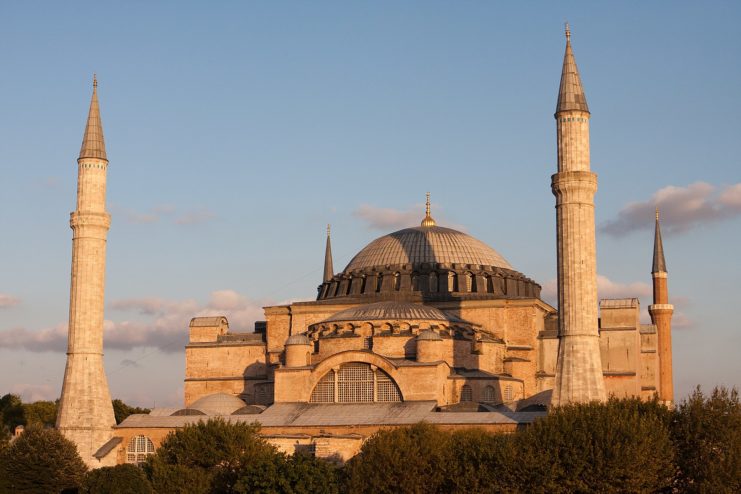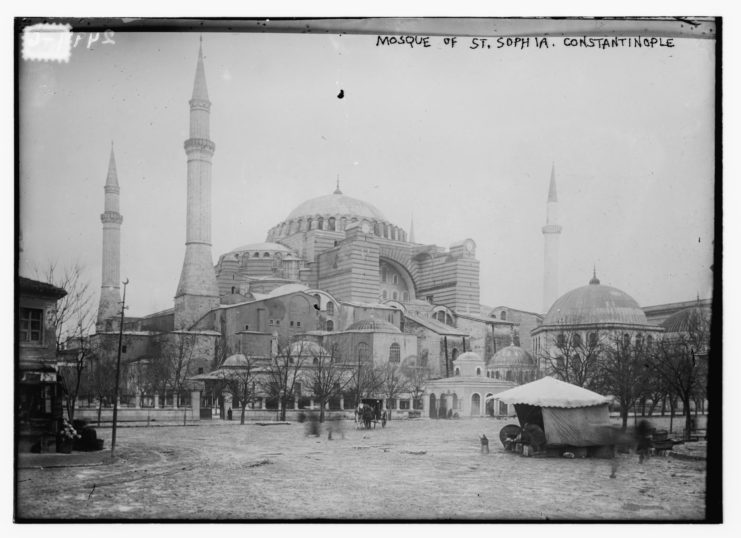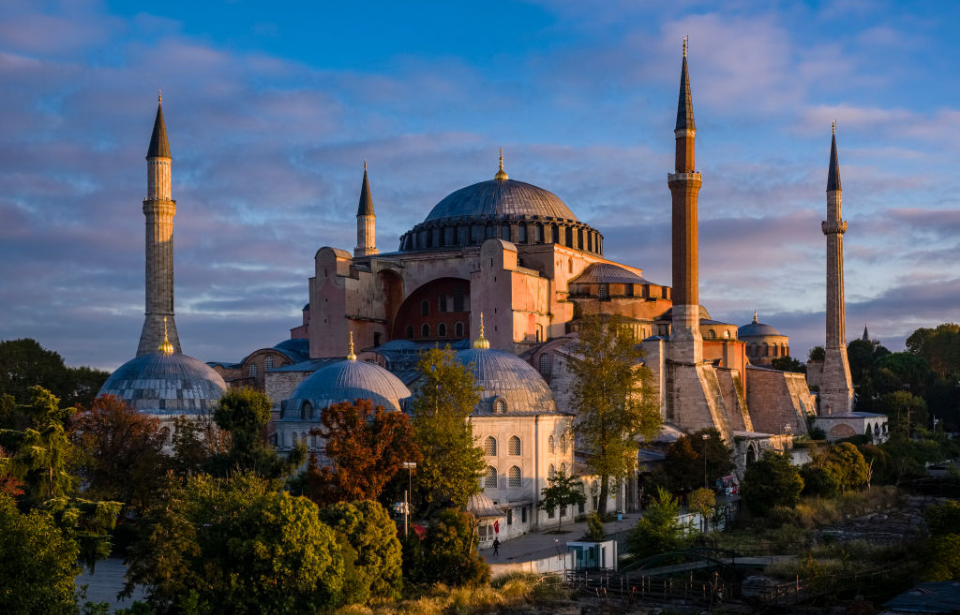The Hagia Sophia’s historic Imperial Gate, which dates back to the 6th century, was severely damaged on April 18, 2022. The vandalism was discovered that evening after the first Tarawih in 88 years was held at the iconic mosque in Istanbul, Turkey.
Gelen bir şikayet fotoğrafı üzerine bu akşam (18.04.2022) saat 20.45 civarı Ayasofya Camisinin, tarihi “İmparatorluk Kapısının” bu halde olduğunu tespit ettim ve fotoğrafladım. Nöbetçi güvenlik müdürünün bilgim yok demesi üzerine ismini Talip Bey olduğunu söyleyen ve Ayasofya’nın pic.twitter.com/BH7qKNjVpg
— Sanat Tarihi Derneği (STD) (@SanatTarihiSTD) April 18, 2022
The 7-meter-tall gate, which is made of oak, is a central portal and the biggest door at the Hagia Sophia. The renowned artifact was supposedly carved from the biblical Noah’s Ark. Also known as the Silver Gates, it was used exclusively by the emperor and his personal guards.
The identity of the perpetrator(s) is not yet known. However, authorities have promised those responsible will be held accountable, and the General Directorate of Institutions has since shared that two inspectors – administrative and technical – have been assigned to the case.
‘The person or persons who caused this disaster should be identified through a camera,” said Mahir Polat, Deputy General Secretary of the Municipality of Istanbul. “The matter should be taken to the prosecutor, as they intentionally caused damage to the number one historic building, the Hagia Sophia.”

The Hagia Sophia was built between 532-537 AD by Byzantine Emperor Justinian the Great. It served as an Orthodox church for a millennium, with the exception of 1204-61, when it was temporarily converted into a Roman Catholic cathedral by the Latin Empire.
Major changes began in 1453, when the Ottoman Empire conquered Constantinople and put an end to the Byzantine Empire. As soon as Sultan Mehmet the Conqueror entered the city, he went to the Hagia Sophia and performed the Friday prayer, which began the temple’s conversion into a mosque.
In 1935, after six centuries, Turkish President Mustafa Kemal Atatürk secularized the mosque’s status, turning it into a museum. It remained open to the public until recently.

In 2020, the Hagia Sophia returned to being a mosque. The decision led to widespread controversy, with the governments of the United States, France and Greece, as well as the Archbishop of Athens and All Greece, protesting the change.
The Hagia Sophia is on the UNESCO list of protected World Heritage Sites. It’s also considered one of the most important and holiest sites for the Orthodox Church.
